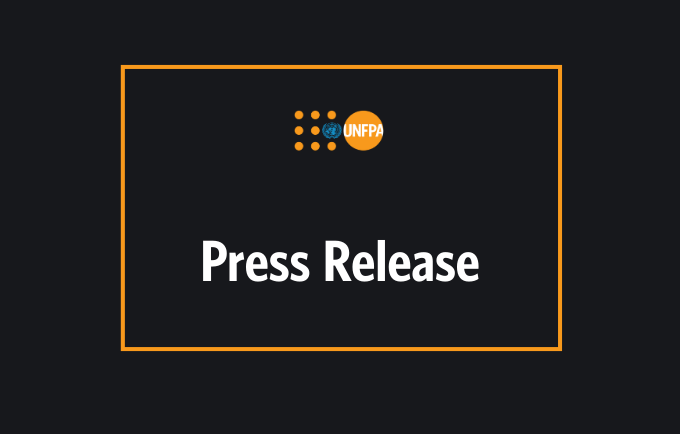Syria – Damascus
21 January 2021
As the humanitarian situation in Syria remains a serious concern, with around 13.4 million people in need of humanitarian aid. According to the World Food Programme, 12.4 million people – nearly 60% of the population – are facing food shortages. The increasing vulnerability of families is further exacerbated by the coronavirus pandemic.
Between 2019 & 2020, thanks to the generous donation of 7,000,000 euros from the EU Civil Protection and Humanitarian Aid (ECHO), UNFPA was able to provide critical & comprehensive services and support to vulnerable women, men and young girls in Syria.
To highlight some of the significant results and achievements of the one year programme, it is worth mentioning that:
Through providing Life-saving Sexual Reproductive Health services, including Gender Based Violence in a predictable, efficient and quality approach, 500,000 individuals approximately benefited from integrated services by UNFPA ‘s implementing partners in Syria. Those services were provided to beneficiaries in 14 Syrian governorates, i.e. (Idleb, Damascus, Rural Damascus, Tartus, Homs, Hama, Al-Hassakeh, Latakia, Aleppo, Dar'a, Raqqa, Deir-ez-Zor, Quneitra, Sweida) through local NGOs and the public facilities of the Ministry of Health and Ministry of Higher Education. It is worthy to refer that the beneficiaries reached so far, 84% were women and 10% girls.
“I really was worried before giving birth, and now I am very happy to have a baby girl,” Asma’a from Ar-Raqqa governorate said after receiving maternal health services from a clinic operated with support from UNFPA. Asma’a is not a special case or an exception. She is one of thousands displaced and deprived families that the clinic serve every day.”
The ECHO & UNFPA supported interventions targeted vulnerable populations including IDPs, returnees, and host communities with a focus on women, children, young people, and people living with disabilities.
3,365,151 of curative consultations were provided either through existing facilities which received substantial support through the project or through parallel, self-standing emergency facilities.
In addition to that, 20,473 live birth attended by skilled health personnel: doctors, nurses or midwives were trained in providing life-saving obstetric care, including in giving the necessary supervision, care and advice to women during pregnancy, childbirth and the postpartum period, and trained to conduct deliveries on their own, and to care for new-born babies.
85,169 Women, girls, men and boys were reached also through Gender Based Violence awareness raising, Psychological First Aid (PFA), Individual and group counselling, life skills activities and dignity kits distribution. Furthermore, adolescent girls were reached through the young mothers club.
972 Women, girls, men and boys were reached with the succeeding Gender Based Violence response services, such as: focused psycho - social support for GBV survivors, case management for GBV survivors, referral to legal services, referral to specialized psychosocial support, referral to medical services and specialized mental health for GBV survivors.
The ECHO & UNFPA supported project will continue through 2021 to providing life- saving Sexual Reproductive Health services, including Gender Based Violence to women and girls in Syria and in camps and host communities throughout the region. As well as, scaling up efforts to empower and improve the lives of Syrian women and youth.
For further info, please contact:
Kinda Katranji, Communication Officer, United Nations Population Fund (UNFPA), Damascus, Syria
Mob: +963 935 88 44 11, Tele: +963 11 6123501, katranji@unfpa.org

